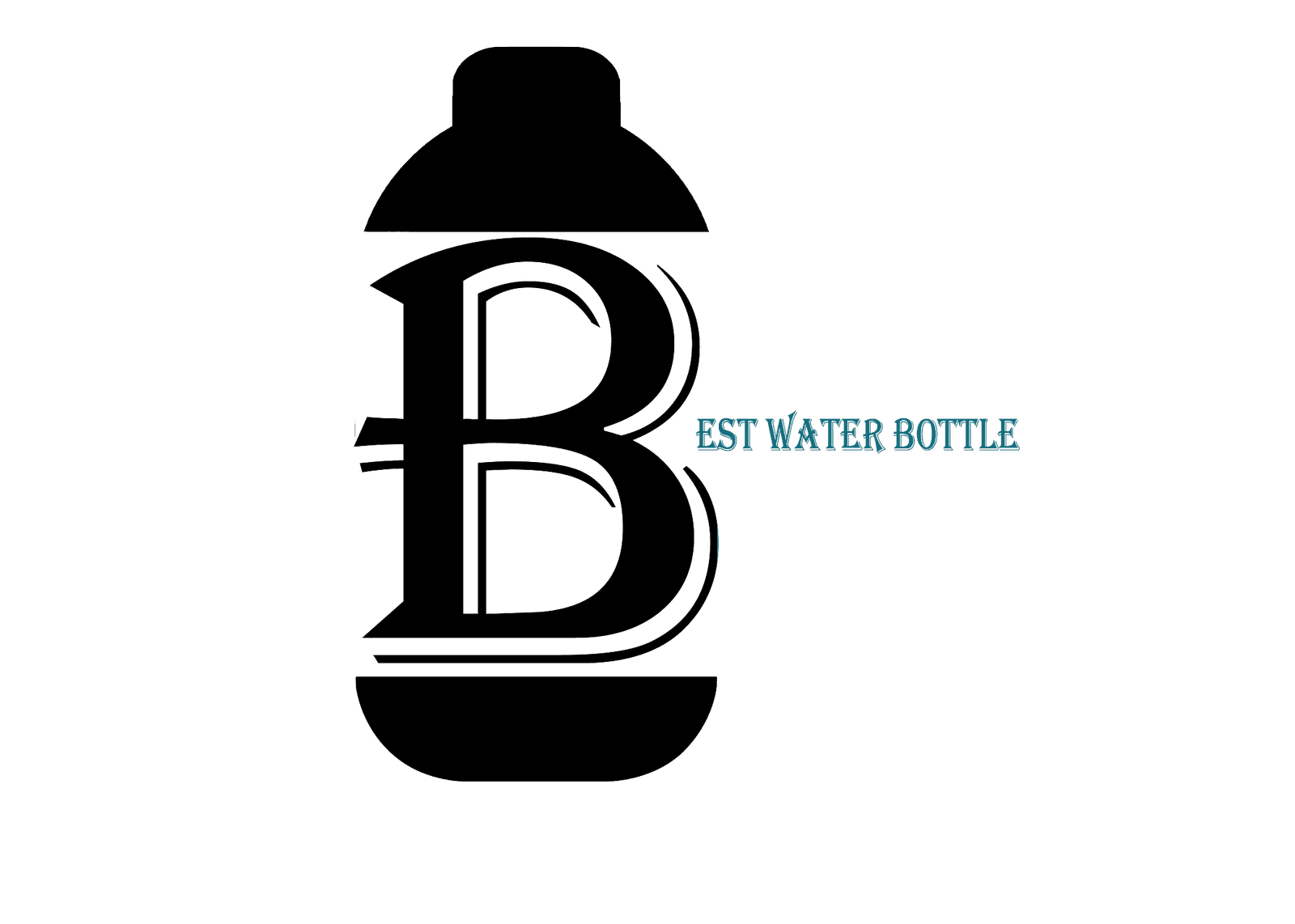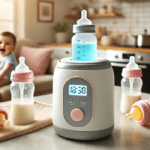
Glass vs Plastic Baby Bottles: 7 Surprising Facts Every Parent Should Know
When it comes to choosing the best baby bottle for your little one, the debate of glass vs plastic baby bottles often leaves parents scratching their heads. Both types of bottles have their pros and cons, and the choice can feel overwhelming.
In this article, we’ll break down 7 surprising facts about glass and plastic baby bottles to help you make an informed decision that’s best for your baby and lifestyle. Let’s dive in!
The safety of your baby is always the top priority, and this extends to the bottles you choose. When comparing glass vs plastic baby bottles, many parents prefer glass due to its non-toxic nature. Glass bottles are free of harmful chemicals like BPA, phthalates, and PVC, which have been linked to health issues in infants.
Although plastic bottles on the market today are BPA-free, some parents remain concerned about other chemicals that could potentially leak into milk, especially when exposed to heat.
Glass Bottles: Environmentally friendly, chemical-free, and safe for use; hence very suitable for parents who are very conscious of the health of their children.
Plastic Bottles: Generally safe if they are BPA-free, but some concerns remain about other potential chemicals.
Guideline: If safety is your top concern, glass bottles are the clear winner for peace of mind.
The choice between glass and plastic baby bottles also has to do with the durability of bottles. Glass baby bottles do not scratch, stain, or damage with frequent use like stainless steel baby bottles or with time like the ceramic baby bottles.
However, they are also more likely to fracture if dropped, which can be a disadvantage, especially for busy moms or kids who love to assist in feeding.
Glass Bottles: Hard and non-porous, but they will crack if one accidentally drops something on them
Plastic Bottles: It’s modular and flexible, durable and unbreakable, thus making it ideal for energetic families, but they might scratch and turn dull over time.
Guideline: If you need a bottle that does not tarnish with age, then glass is more resilient, but if your main concern is breakage, then go for a plastic bottle.
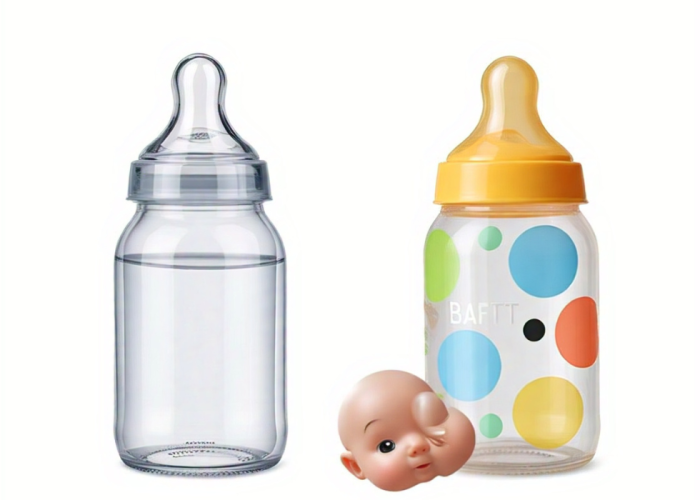
We’ll compare light weight versus the slightly heavier options below: On the question of convenience, the disposable plastic baby bottles always seem to trump other baby bottles because they are light. Plastic bottles can easily be carried around just in case you are traveling or when you are feeding your baby while in a car or a bus
Glass bottles, however, are heavier than the plastic ones and may provide less convenience to the parent who has to move it from one place to the other.
Glass Bottles: bigger and not as portable as the above strollers, but many parents feel they can handle the weight.
Plastic Bottles: easy to carry around, good for parents who may need to use them from time to time.
Guideline: For those that find themselves constantly on the move or always traveling with the family, the plastic bottles may be more useful and therefore more preferable.
Sustainability Matters It is an issue of natural concern regarding the usage of baby bottles based on the fact that it is something more than parents are beginning to worry about. The debate between glass and plastic baby bottles has placed the glass bottles as being more safe for the environment. It must also be noted that glass does not have to be reused into new designs for only a few years; it can actually be used for many years.
Although convenient, plastic bottles also generate massive amounts of plastic waste, and their recycling is unlikely.
Glass Bottles: Contains no toxins; it is easy to recycle and can be reused for several years.
Plastic Bottles: Definitely not very sustainable; many that end up in a landfill are also considered to be plastic waste.
Guideline: Sustainability is another factor that will be in favor of glass baby bottles over BPA baby bottles.
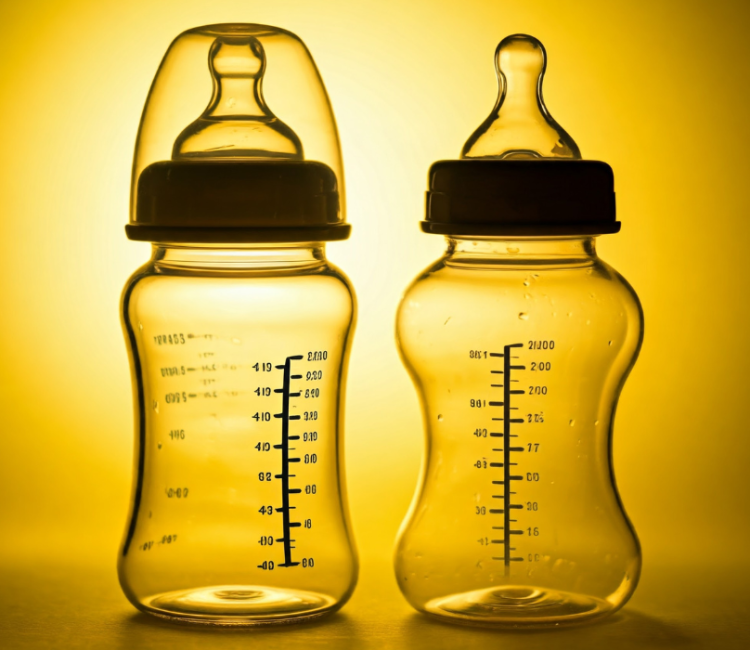
Which Is Easier? It’s very important that baby bottles are cleaned; usually this takes quite some time. Glass bottles are for the same reasons appreciated because they do not scratch, and odor as well as stains from prior content contaminate. They can also take high temperatures of cleansing, which makes it the perfect tool for the process.
Like glass bottles, plastic bottles are dishwasher safe, but over time they have scratches where the inner walls meet the outer; these areas hide dirt where bacteria increase and cleaning becomes difficult.
Glass Bottles: Contains no toxins; it is easy to recycle and can be reused for several years.
Plastic Bottles: It can be scratched, making cleaning more tasking as time goes on.
Guideline: In this case, since the bottles will need to be cleaned frequently, the glass type of bottles is more convenient to use.
Price is one thing that most parents will consider when looking at the glass and plastic baby bottles. In the initial instance, glass bottles are regarded as pretty higher than plastic bottles, as they will cost pretty less.
But seeing that glass bottles are more durable than the plastic ones, one can consider saving more since one is not likely to use them frequently.
Glass Bottles: more expensive initially and can be far cheaper in the long run as the current will usually wear out before the lights.
Plastic Bottles: It costs reasonably less initially than the last but is likely to need changing more frequently.
Guideline: Overall, if one wants to make a long-term investment, then the glass bottles would cost a lower price even if the start-up price would be a tad high.
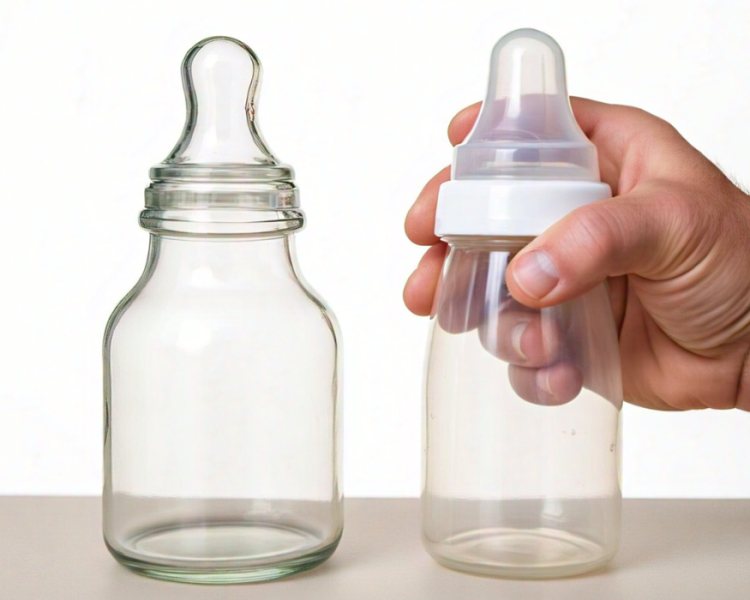
Here, glass bottles are durable, heat-resistant, and can stand very high temperatures, making them ideal for sterilization and heating milk. Glass bottles can be moved safely from the refrigerator to hot water without them being a degradable item.
Plastic, on the other hand, is slightly more sensitive or standard to temperature, and the bottles can actually turn bad, basically misshapen, especially when exposed to heat.
Glass Bottles: Glass bottles are resistant to high temperatures, which for purposes like heating or sterilization is an added advantage.
Plastic Bottles: low heat stability and may be compromised or destroyed when exposed to high heat.
Guideline: In case you require bottles that can withstand heat well, glass is more suitable.
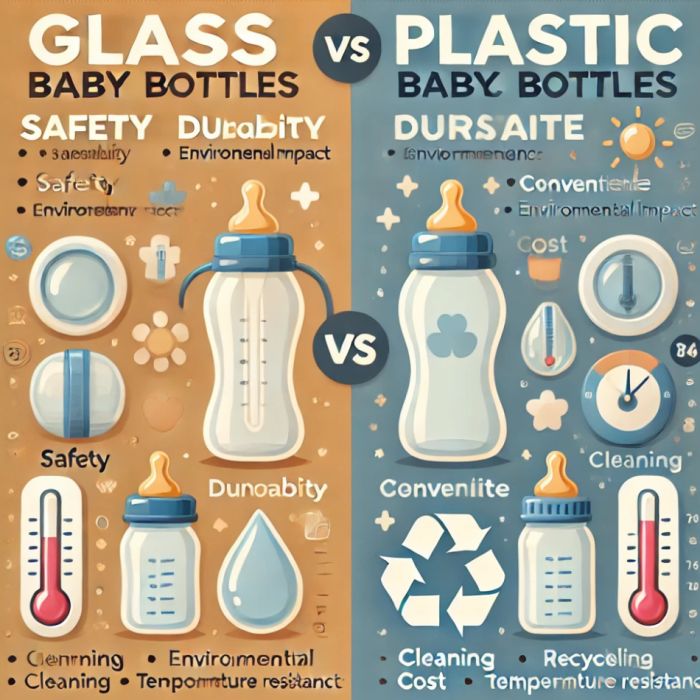
The choice therefore of whether to use glass or plastic baby bottles will depend on the reality of the needs and lifestyle of that particular household. So if safety, durability, and sustainability are your most valued qualities, then glass baby bottles will suit you well.
They come as chemical-free, long-lasting, and environmentally friendly, and this is why many parents enjoy it. In contrast, if you’re concerned about convenience, lightness, and cost, plastic bottles are a very good choice; they are easy to carry and cheap.
Summary Of Key Points:
- Glass Bottles: non-toxic, can withstand abuse, reusable, biodegradable, easy to clean, but slightly heavier and costlier.
- Plastic Bottles: portability, ease of carrying, cost-effective, break-free from damage but can break down gradually, are not very eco-friendly.
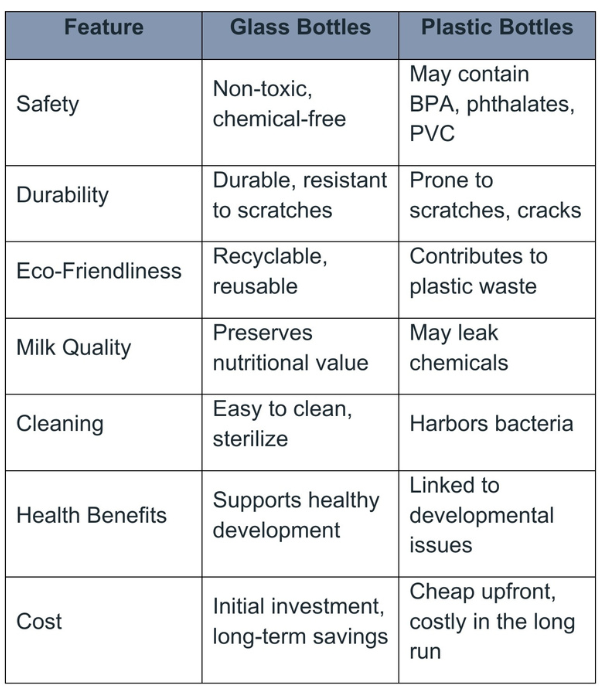
I think it does not matter which type of bottle you will buy; the main thing important for you and your baby is that a bottle is comfortable for you and your baby.
Using these 7 facts about glass and plastic baby bottles, you’ll be able to make a better decision for your baby and get the best for him or her.
